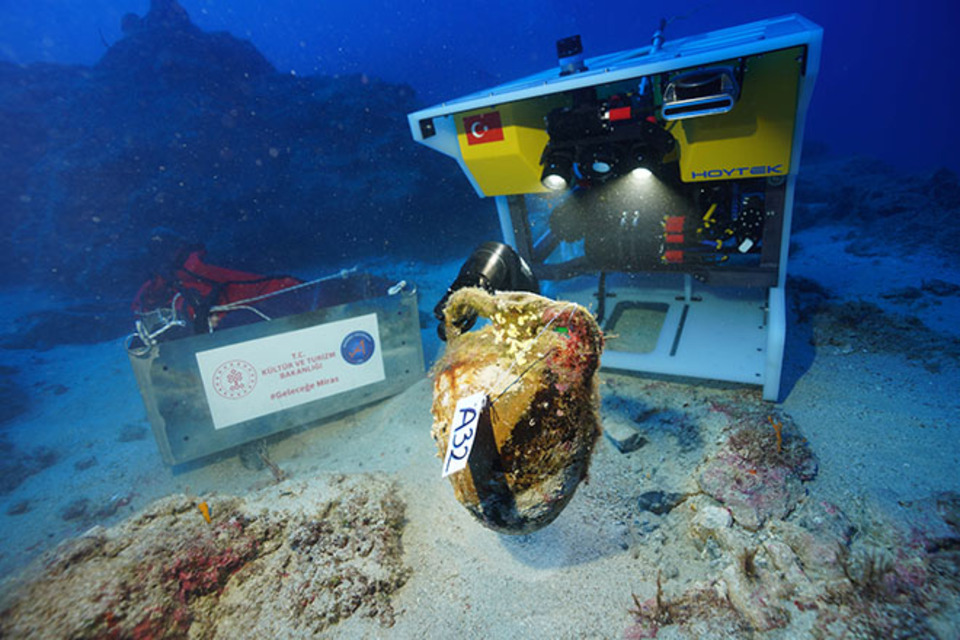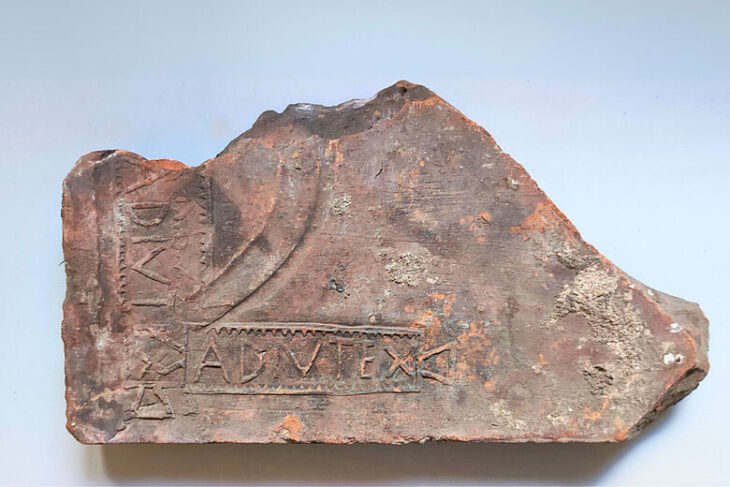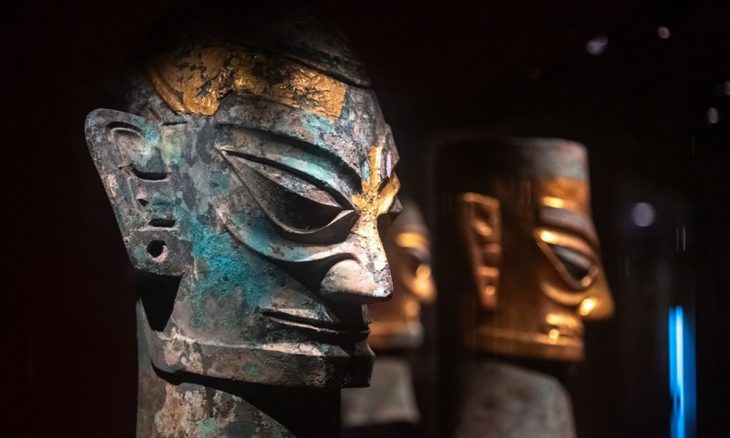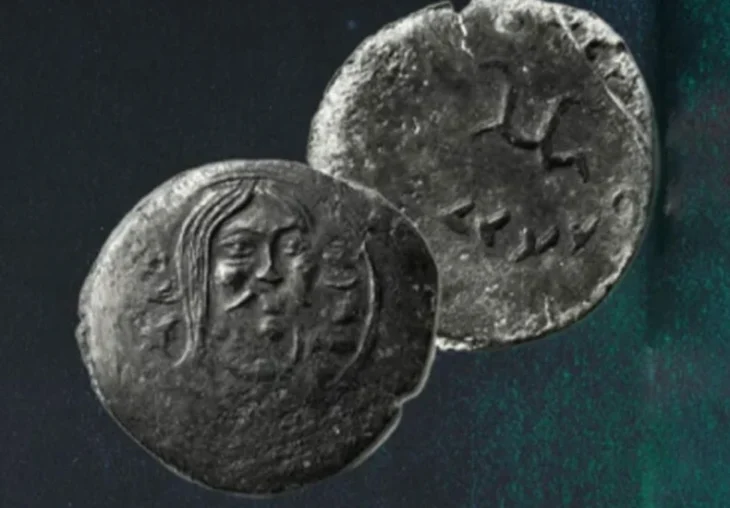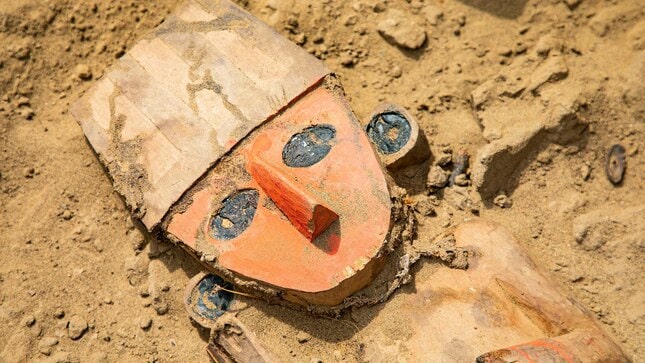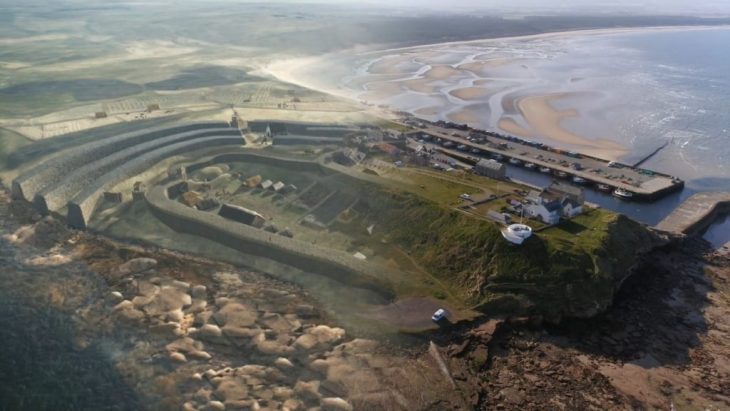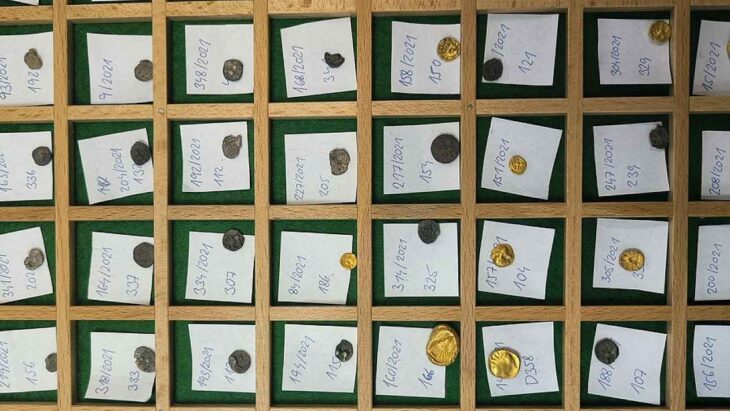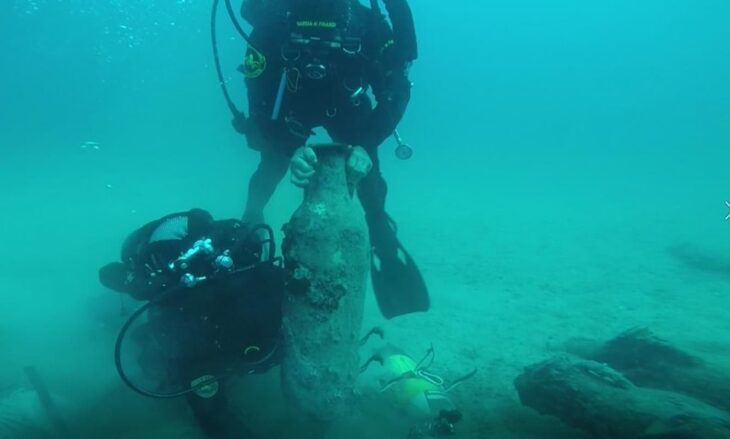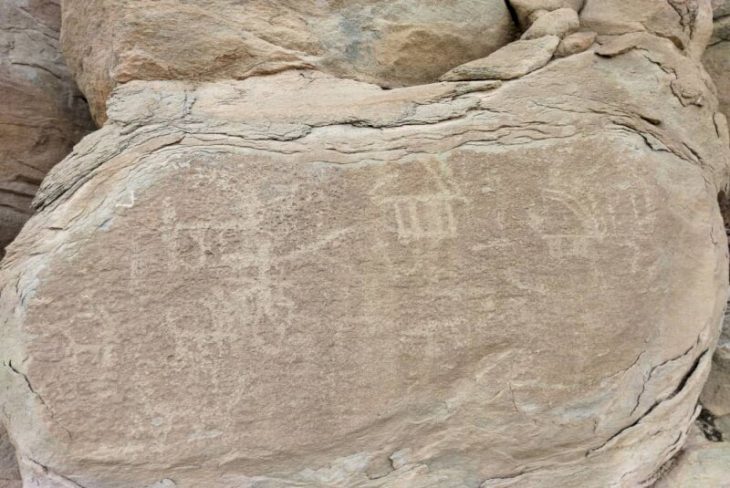The recent underwater excavations off the coast of Türkiye have unveiled an extraordinary find that has captivated scientists: olive pits from a shipwreck that sank 1100 years ago. This vessel, which set sail from the Gaza coast of Palestine, was caught in a storm near Antalya and ultimately met its fate beneath the waves. Assoc. Prof. Hakan Öniz and his team found olive pits that had never been encountered before in underwater excavations off the coast of Türkiye.
As part of the ‘Heritage to the Future Project’ initiated by the Ministry of Culture and Tourism, Assoc. Prof. Dr. Hakan Öniz and his team began their underwater excavations at a depth of approximately 45-50 meters near Besmi Island, off the coast of Kaş district in Antalya in 2024.
Assoc. Prof. Dr. Öniz, who heads the Department of Conservation and Repair of Cultural Assets at Akdeniz University’s Faculty of Fine Arts, explained that their work is part of a broader initiative to establish an Underwater Archaeology Museum in Kemer district. This project aims not only to conduct scientific research but also to exhibit the artifacts recovered from these underwater sites. He noted that their excavation efforts can span up to 12 months, and they have recently focused on the wreck at Besmi Island, which, while known and accessible to tourists, is situated at a depth that limits diving access.
The shipwreck, dating back to the 9th-10th century A.D., is particularly intriguing due to its cargo. Assoc. Prof. Dr. Öniz revealed that they have identified the wreck as a Philistine ship, loaded with olive oil from Gaza. He remarked, “1100 years ago, this region was renowned for its olive production. While Gaza often evokes negative associations today, we hope for a brighter future. This ship, transporting olive oil in amphorae, encountered a storm off the coast of Kaş, struck a small rock or island, and sank. The wreck is fascinating not only because of its depth but also due to its cargo. In ancient times, ships primarily carried olive oil and wine, but what we discovered from one of the amphorae was truly remarkable.”
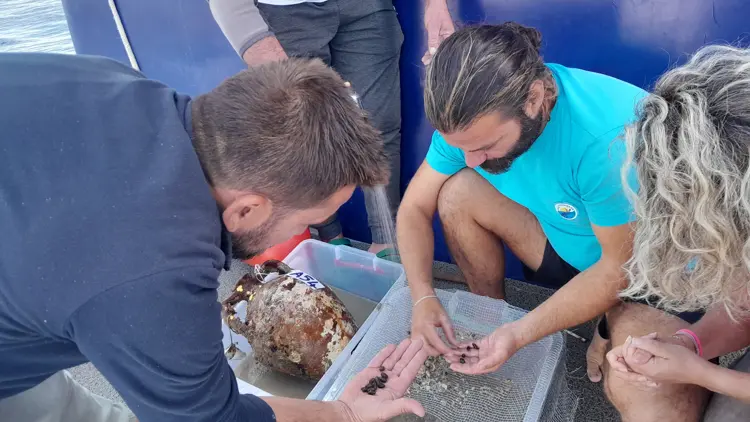
Assoc. Prof. Dr. Öniz emphasized that amphorae from different regions had distinct characteristics, allowing them to ascertain that this shipwreck originated from Palestine based on the amphora typology found within.
📣 Our WhatsApp channel is now LIVE! Stay up-to-date with the latest news and updates, just click here to follow us on WhatsApp and never miss a thing!!
A First for Turkey: Unique Finds from the Wreck
The team was particularly excited by the discoveries made within one of the amphorae. “These finds, although known in literature, have never been encountered in amphorae in Turkey before,” he stated. Using underwater robots, they successfully brought the amphorae to the surface, and over the past year, they have been conducting deep-water excavations. Among the finds were olive pits, a significant discovery that adds to the historical narrative.
Assoc. Prof. Dr. Öniz highlighted the importance of olives as a staple food for sailors in antiquity. “For about 5,000 years, olives have been a vital source of sustenance for Mediterranean sailors since the Bronze Age,” he explained. He noted that sailors required food that could withstand long voyages without spoiling, and olives stored in amphorae could remain edible for months, even when submerged in seawater. Additionally, ships often carried live animals and wheat, which could be processed into flour and baked into bread onboard.
He underscored that most underwater archaeological studies in Turkey are conducted by Akdeniz University, and the olive pits found in this wreck represent a first for the Turkish coast. Assoc. Prof. Dr. Öniz concluded by stating that these remarkable finds will be displayed at the Mediterranean Water Archaeology Museum in Kemer, where the Ministry of Culture and Tourism is preparing to lay the foundation.

